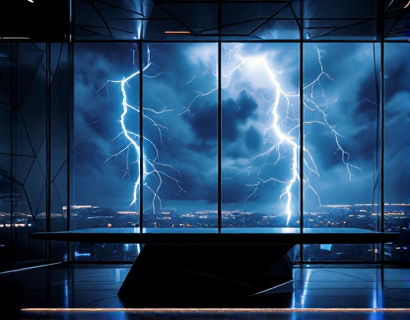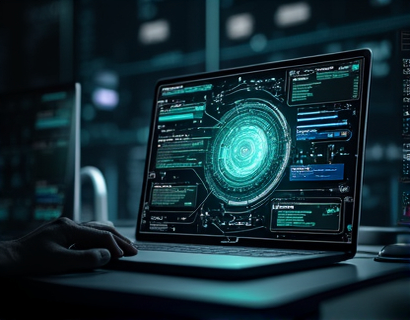Blockchain-Powered Notarization: Revolutionizing Document Security and Accessibility
In an era where digital transactions and remote work have become the norm, the need for secure and efficient document notarization has never been more critical. Traditional notarization processes, while established, often involve cumbersome paper-based procedures, lengthy wait times, and a reliance on centralized authorities. Blockchain-powered notarization emerges as a transformative solution, leveraging the inherent properties of blockchain technology to streamline document security and accessibility. This article delves into how this innovative approach is reshaping the landscape of legal and business document management, offering a decentralized, transparent, and trustworthy alternative to conventional methods.
Understanding Blockchain Technology
Before exploring the applications of blockchain in notarization, it's essential to grasp the fundamental concepts of blockchain technology. At its core, a blockchain is a distributed ledger that records transactions across multiple computers in such a way that the registered transactions cannot be altered retroactively. This technology ensures transparency, immutability, and decentralization, making it an ideal foundation for secure and trustworthy document management.
Each block in the chain contains a cryptographic hash of the previous block, a timestamp, and transaction data. This structure creates an unbreakable link between blocks, ensuring that any attempt to alter a block would require changing all subsequent blocks, which is computationally infeasible. This inherent security feature makes blockchain an excellent tool for maintaining the integrity and authenticity of documents.
Decentralized Trust in Notarization
Traditional notarization relies on a centralized authority, typically a government-appointed notary public, to verify the identity of the signatories and the authenticity of the document. While this system has served its purpose, it is not without flaws. Centralized systems are vulnerable to fraud, corruption, and single points of failure. Blockchain-powered notarization addresses these issues by distributing trust across a network of nodes, eliminating the need for a central authority.
In a blockchain-based notarization system, the notary's role is transformed into a smart contract—a self-executing contract with the terms directly written into code. When a document is submitted for notarization, the smart contract verifies the identity of the signatories, the document's integrity, and other required conditions. Once verified, the transaction is recorded on the blockchain, creating a permanent and tamper-evident record.
Enhanced Security and Integrity
The security benefits of blockchain-powered notarization are substantial. The cryptographic algorithms used in blockchain ensure that once a document is notarized, it cannot be altered without detection. Each document is assigned a unique digital signature, which, when combined with the blockchain's immutable ledger, provides a high level of assurance against tampering and fraud.
Moreover, the decentralized nature of blockchain means that there is no single point of failure. Even if some nodes in the network are compromised, the overall integrity of the system remains intact. This redundancy and the use of consensus mechanisms, such as Proof of Work or Proof of Stake, further enhance the security of the notarization process.
Streamlined Process and Accessibility
One of the most significant advantages of blockchain-powered notarization is the streamlined process it offers. Traditional notarization often involves multiple steps, including document preparation, physical presence of the notary, and postal or in-person delivery for signature verification. These steps can be time-consuming and inconvenient, especially for international transactions.
With blockchain, the entire process can be completed online, in real-time, and from anywhere in the world. Users can upload their documents, authenticate their identities through digital means, and receive immediate notarization. The smart contract ensures that all conditions are met before the document is considered notarized, reducing the risk of errors and disputes.
Accessibility is another key benefit. Blockchain-based notarization platforms can operate 24/7, removing the constraints of traditional business hours. This flexibility is particularly beneficial for businesses operating across different time zones or for individuals who require urgent notarization services.
Transparency and Traceability
Transparency is a cornerstone of blockchain technology, and it plays a crucial role in blockchain-powered notarization. Every step of the notarization process is recorded on the blockchain, creating a transparent and auditable trail. This transparency ensures that all parties involved can verify the authenticity and integrity of the document at any point in time.
Traceability is equally important. Each document is linked to its previous version, allowing users to track changes and verify the document's history. This feature is particularly useful in legal and compliance scenarios where a clear audit trail is essential.
Cost Efficiency
Traditional notarization can be expensive, especially when considering the costs associated with physical documentation, travel, and administrative fees. Blockchain-powered notarization significantly reduces these costs by eliminating the need for physical documents and intermediaries.
Smart contracts automate many of the tasks traditionally handled by notaries, such as identity verification and document validation. This automation not only speeds up the process but also reduces the labor costs associated with manual verification. As a result, users can enjoy cost-effective notarization services without compromising on security or reliability.
Regulatory Compliance and Legal Recognition
One of the critical challenges for blockchain-based notarization is gaining regulatory acceptance and legal recognition. Many jurisdictions are still in the process of understanding and adapting to the implications of blockchain technology in legal contexts. However, there is a growing trend towards recognizing blockchain-based notarization as a valid and enforceable form of authentication.
Several countries and regions have already started to integrate blockchain-based solutions into their legal frameworks. For instance, some governments have issued guidelines for the use of electronic notarization and have recognized digital signatures and blockchain records as legally binding. As more jurisdictions adopt these technologies, the legal standing of blockchain-powered notarization will continue to strengthen.
Case Studies and Real-World Applications
To better understand the practical applications of blockchain-powered notarization, let's look at a few case studies and real-world examples.
One notable example is the use of blockchain in the real estate industry. Property transactions often involve complex documentation and a high risk of fraud. By implementing blockchain-based notarization, real estate companies can ensure that all documents, from property deeds to contracts, are securely and transparently managed. This not only speeds up the transaction process but also reduces the risk of disputes and fraud.
Another application is in the corporate sector, where companies frequently deal with sensitive documents such as contracts, agreements, and intellectual property. Blockchain-powered notarization provides a secure and efficient way to manage these documents, ensuring that all parties have access to the most up-to-date and authentic versions.
In the field of education, blockchain-based notarization can be used to verify the authenticity of academic credentials. Diplomas, certificates, and other educational documents can be stored on a blockchain, providing students and employers with a reliable and tamper-proof way to verify qualifications.
Challenges and Future Developments
Despite its numerous advantages, blockchain-powered notarization is not without challenges. One of the primary hurdles is the need for widespread adoption and standardization. For blockchain to become a mainstream solution, there must be a consensus on technical standards, regulatory frameworks, and industry practices.
Another challenge is the user experience. While the technology is robust, the interface and user experience must be intuitive and user-friendly to encourage adoption. This requires ongoing development and innovation in the design of blockchain-based notarization platforms.
Looking ahead, the integration of blockchain with other emerging technologies, such as artificial intelligence and the Internet of Things (IoT), holds great promise. AI can enhance the automation and efficiency of the notarization process, while IoT devices can provide additional layers of authentication and verification.
Conclusion
Blockchain-powered notarization represents a significant leap forward in document security and accessibility. By leveraging the unique properties of blockchain technology, this innovative approach offers a decentralized, transparent, and secure alternative to traditional notarization methods. As the technology continues to evolve and gain regulatory acceptance, it is poised to transform the way we manage and verify documents in both legal and business contexts. Embracing blockchain-powered notarization is not just a matter of staying ahead of the curve; it's about ensuring the integrity, efficiency, and trustworthiness of our digital interactions.










































